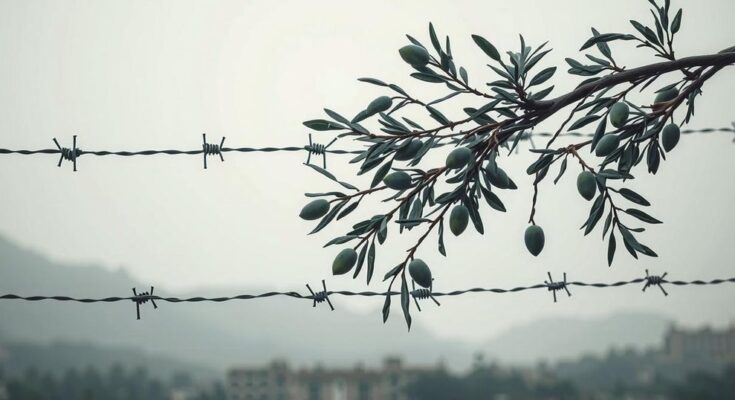In Puntland, Somalia, three Ethiopian nationals were killed amid accusations of ISIS links, sparking allegations of widespread violence against Ethiopian refugees. Many detainees are reported to be civilians, with claims of targeted harassment escalating following Ethiopia’s maritime agreement with Somaliland. Observers are concerned about a growing trend of anti-Ethiopian sentiments fueled by historical tensions and political developments.
Three Ethiopian nationals were reported killed in Puntland, Somalia, amid allegations of their involvement with the Islamic State (ISIS). This violence led to multiple arrests of Ethiopian migrants and heightened tensions in cities like Garowe and Bosaso, as noted by local residents. Eyewitness accounts indicate that the violence escalated over two days, commencing with the killing of one Ethiopian by government forces on January 26, 2025, followed by two others beaten to death by the public the next day.
Residents suggest these killings are rooted in broader anti-Ethiopian sentiment, arguing that the security forces are unfairly targeting all Ethiopians due to the alleged actions of a few. “There may be Ethiopians involved, but punishing all Ethiopians under the pretext that a few individuals are linked to this group is not justified,” stated one anonymous resident. Furthermore, reports highlight that the Puntland security forces have detained thousands of Ethiopian nationals, with over 500 arrests occurring in Garowe alone.
The crackdown is perceived by many as evidence of growing resentment against Ethiopians, particularly following Ethiopia’s maritime agreement with Somaliland, which Somalia disputes. One resident remarked, “Unless this is motivated by hatred, the justification being given does not explain the widespread targeting of all Ethiopians.” This hostility is believed to stem from deep-rooted animosities, compounded by government actions purportedly threatening Ethiopian refugees and their livelihoods.
Previously, Ethiopian refugees in Puntland have faced significant challenges, including forced eviction and violence. In June 2024, Puntland authorities ordered the expulsion of Ethiopians lacking proper refugee documentation. There is an ongoing concern about their safety, with reports of violent threats and actions against them escalating after Ethiopia’s agreement with Somaliland, to which many have attributed the intensifying hostility. The UNHCR has expressed awareness of the situation and is coordinating with authorities to protect these vulnerable populations.
In recent months, the situation for Ethiopian nationals in Puntland has deteriorated significantly, characterized by violence and discrimination. The emergence of anti-Ethiopian sentiment has been linked to geopolitical tensions, particularly following Ethiopia’s maritime agreement with Somaliland. Historically, Ethiopian refugees in Puntland have faced challenges regarding documentation and legal status, contributing to their vulnerability and the potential for violent backlash from local communities. The antagonism towards Ethiopians can often be traced back to complex historical and social dynamics within the region, which have been exacerbated by political developments.
The reports of three Ethiopian nationals killed and numerous arrests in Puntland highlight a concerning trend of violence and discrimination against Ethiopian refugees. The targeting appears to stem from broader anti-Ethiopian sentiments fueled by recent political events. As the situation unfolds, local and international organizations, including UNHCR, are urged to intervene to protect the rights and safety of these vulnerable communities, ensuring that actions taken are just and proportionate to the threats faced.
Original Source: addisstandard.com




